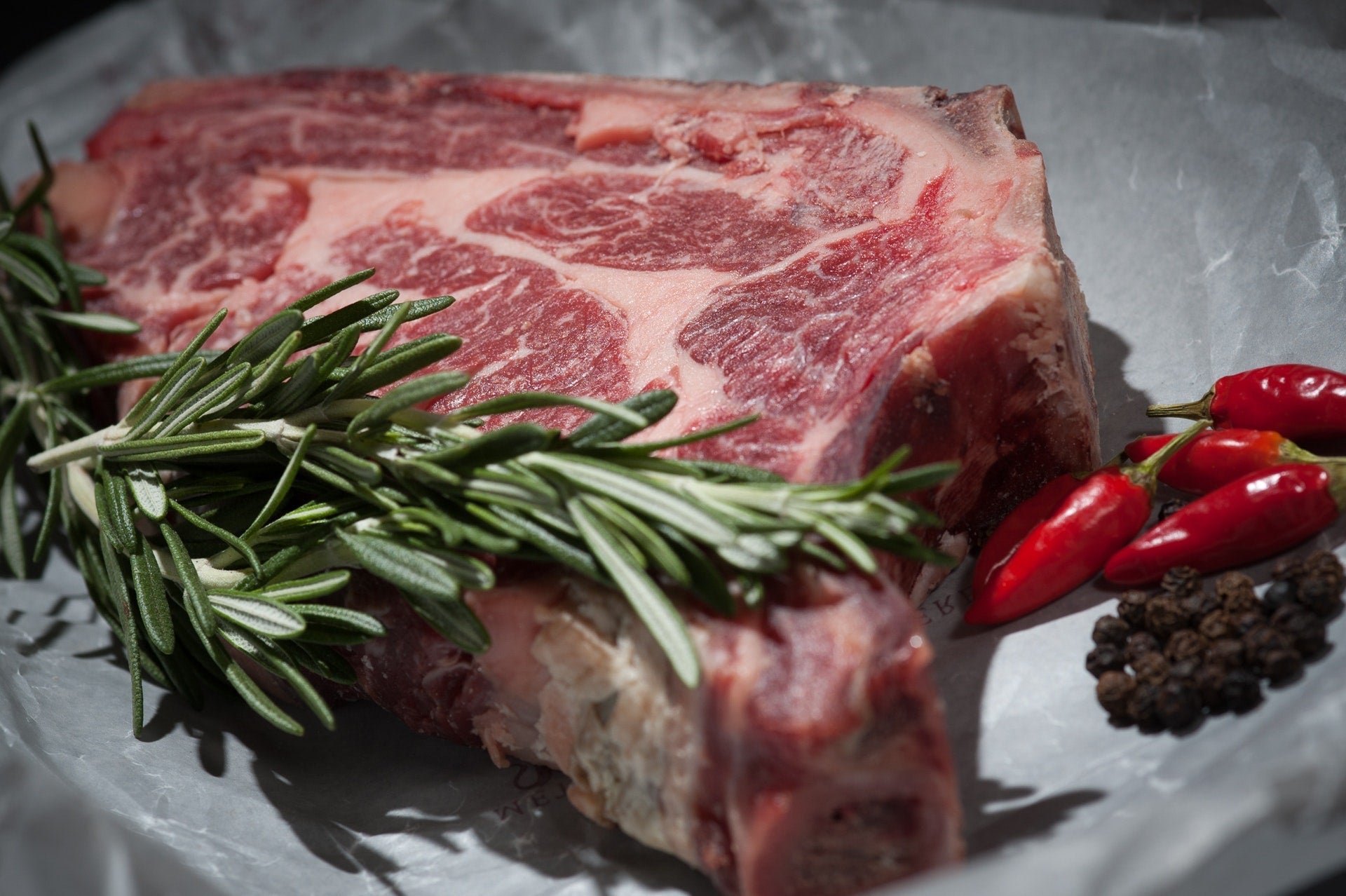Science and dietary wisdom teach us the importance of getting in micronutrients for health and longevity.
However, the messaging has been a little misguided. Your doctors, your teachers in school, and even your parents drummed the message of eating a variety of fruit and vegetables.
The issue with this conventional ‘5 a day’ type of messaging is it ignores a simple truth: meat and organs possess incomparable levels of micronutrient content AND bioavailability (absorption).
And it is this messaging the mainstream propagates that is, in part, responsible for growing nutrient deficiencies across the western world.
For example, In the US and UK alone, approximately 6% of adults younger than 60 years have vitamin B12 deficiency (1).
What many don’t realise is that not only are meat and organs an abundant source of micronutrients, but they also contain many that simply do not exist in the plant kingdom. Hence why those following vegan or vegetarian diets require meticulous planning and supplementation (which many fail to do).
So, in a nutshell, consuming meat and organs are an evolutionarily appropriate way to eat. Their superior spectrum and quantities of available micronutrients dwarf that of fruit or plants – and standing taller than any animal food is beef liver.
There’s a reason people call it a ‘superfood’ and ‘nature’s multivitamin’.
Just check out the chart below:

10 Reasons to Eat Beef Liver (Benefits)
Supports immunity and organ function
The preformed vitamin A in liver (retinol) is the single most concentrated source available on the planet – and the form our body uses (unlike carotenoids found in vegetables). This is where beef liver really shines. This micronutrient is essential for several reasons but is especially important for the immune system and healthy functioning organs (2).
Critical Support For Brain Health
It contains an essential nutrient called choline. Closely resembling a B vitamin, choline is a precursor to Acetylcholine – a critical neurotransmitter that supports memory and brain function (3, 4).
Boosts Energy & Metabolism
The B12 content and CoQ10 enzyme found in liver support energy production (5, 6). B12 has also been shown to support fat metabolism and can contribute to maintaining a healthy weight (7).
Vital for Eye Health
Going back to vitamin A potency, the high retinol content is fundamental for healthy vision (8). It supports a light-sensitive protein in the retina and is critical in the prevention of eye-related issues that deficiency can trigger (9).
Antioxidant effects
Beef liver contains an enzyme called CoQ10. On top of supporting mitochondria energy production, it’s a powerful antioxidant that prevents oxidative stress and cell damage (10).
Protects the Heart
While we’re on the topic of CoQ10, this critical enzyme has been shown to improve blood flow to the heart and is associated with a lower risk of heart-related issues (11, 12).
Supports Bones
The vitamin D, vitamin K, magnesium and calcium content of beef liver promote healthy bone mineral density (13, 14, 15). In fact, vitamin K has been shown to reduce fracture rates in those with osteoporosis, and it works in synergy with vitamin D on bone density (16).
Supports Nervous System
Your nervous system is your body’s central command and plays a core role in just about everything. From brain function to physical performance, mood and ageing (17). Beef liver’ generous dose of B vitamins, selenium, zinc, iron, copper and magnesium are critical for proper nervous system function (18).
Contributes to DNA & Red Blood Cell formation
Beef liver provides an unrivalled amount of Copper. This is necessary for the formation of red blood cells and iron metabolism (19).
It’s Affordable
Unlike all the gimmicky BS ‘superfoods’ and supplements, beef liver is very cheap. Largely because it’s gone out of dietary fashion and isn’t palatable for many. So, instead of forking out on goji berries and expensive green smoothies, you can head down to your local butcher and capture WAY more health benefits for a fraction of the cost.
Conclusion
With micronutrient deficiency skyrocketing, beef liver is hands down the most effective and efficient way to cover your needs. Without being intentional in including these critical vitamins and minerals in your diet, you’re more likely than not getting them in adequate amounts and potentially jeopardizing your health.
The overwhelming majority of people who include beef liver in their diet experience drastic changes. Such as improved energy, sleep, mood and libido. This tends to enhance other important areas of life such as exercise performance, better body composition, improved relationships, and more creativity and focus at work.
And if you want to experience the transformative effects of beef liver, but don’t have access to grass-fed and finished sources or just can’t stomach the intense flavour – desiccated capsules can give you the same result (like the ones we source at NOBS).
Sources
-
ods.od.nih.gov. (n.d.). Office of Dietary Supplements - Vitamin B12. [online] Available at: https://ods.od.nih.gov/factsheets/VitaminB12-HealthProfessional/#h5.
-
Nih.gov. (2017). Office of Dietary Supplements - Vitamin A. [online] Available at: https://ods.od.nih.gov/factsheets/VitaminA-Consumer/#h1.
-
Poly, C., Massaro, J.M., Seshadri, S., Wolf, P.A., Cho, E., Krall, E., Jacques, P.F. and Au, R. (2011). The relation of dietary choline to cognitive performance and white-matter hyperintensity in the Framingham Offspring Cohort. The American Journal of Clinical Nutrition, [online] 94(6), pp.1584–1591. doi:10.3945/ajcn.110.008938.
-
Nurk, E., Refsum, H., Bjelland, I., Drevon, C.A., Tell, G.S., Ueland, P.M., Vollset, S.E., Engedal, K., Nygaard, H.A. and Smith, D.A. (2013). Plasma free choline, betaine and cognitive performance: the Hordaland Health Study. The British Journal of Nutrition, [online] 109(3), pp.511–519. doi:10.1017/S0007114512001249.
-
Prakash, S., Sunitha, J. and Hans, M. (2010). Role of coenzyme Q10 as an antioxidant and bioenergizer in periodontal diseases. Indian Journal of Pharmacology, [online] 42(6), pp.334–337. doi:10.4103/0253-7613.71884.
-
National Institutes of Health (2016). Office of Dietary Supplements - Vitamin B12. [online] Nih.gov. Available at: https://ods.od.nih.gov/factsheets/VitaminB12-Consumer/.
-
Boachie, J., Adaikalakoteswari, A., Samavat, J. and Saravanan, P. (2020). Low Vitamin B12 and Lipid Metabolism: Evidence from Pre-Clinical and Clinical Studies. Nutrients, 12(7), p.1925. doi:10.3390/nu12071925.
-
Dowling, J.E. (2020). Vitamin A: its many roles—from vision and synaptic plasticity to infant mortality. Journal of Comparative Physiology A, [online] 206(3), pp.389–399. doi:10.1007/s00359-020-01403-z.
-
National Institutes of Health (2017). Office of Dietary Supplements - Vitamin A. [online] Nih.gov. Available at: https://ods.od.nih.gov/factsheets/VitaminA-HealthProfessional/.
-
Saini, R. (2011). Coenzyme Q10: The essential nutrient. Journal of Pharmacy and Bioallied Sciences, 3(3), p.466. doi:10.4103/0975-7406.84471.
-
Fotino, A.D., Thompson-Paul, A.M. and Bazzano, L.A. (2012). Effect of coenzyme Q10 supplementation on heart failure: a meta-analysis. The American Journal of Clinical Nutrition, 97(2), pp.268–275. doi:10.3945/ajcn.112.040741.
-
Mortensen, S.A., Rosenfeldt, F., Kumar, A., Dolliner, P., Filipiak, K.J., Pella, D., Alehagen, U., Steurer, G. and Littarru, G.P. (2014). The Effect of Coenzyme Q 10 on Morbidity and Mortality in Chronic Heart Failure. JACC: Heart Failure, 2(6), pp.641–649. doi:10.1016/j.jchf.2014.06.008.
-
National Institutes of Health (2019). Office of Dietary Supplements - Calcium. [online] Nih.gov. Available at: https://ods.od.nih.gov/factsheets/Calcium-Consumer/.
-
National Institutes of Health (2016). Office of Dietary Supplements - Magnesium. [online] Nih.gov. Available at: https://ods.od.nih.gov/factsheets/Magnesium-Consumer/.
-
National Institutes of Health (2017). Office of Dietary Supplements - Vitamin D. [online] Nih.gov. Available at: https://ods.od.nih.gov/factsheets/VitaminD-Consumer/.
-
Weber, P. (2001). Vitamin K and bone health. Nutrition (Burbank, Los Angeles County, Calif.), [online] 17(10), pp.880–7. doi:10.1016/s0899-9007(01)00709-2.
-
NIH (2018). What does the nervous system do? [online] http://www.nichd.nih.gov/. Available at: https://www.nichd.nih.gov/health/topics/neuro/conditioninfo/functions.
-
Wendołowicz, A., Stefańska, E. and Ostrowska, L. (2018). Influence of selected dietary components on the functioning of the human nervous system. Roczniki Panstwowego Zakladu Higieny, [online] 69(1), pp.15–21. Available at: https://pubmed.ncbi.nlm.nih.gov/29517182/#:~:text=The%20potentially%20beneficial%20nutrients%20with [Accessed 30 Oct. 2022].
- Linus Pauling Institute. (2014). Copper. [online] Available at: https://lpi.oregonstate.edu/mic/minerals/copper#function.



